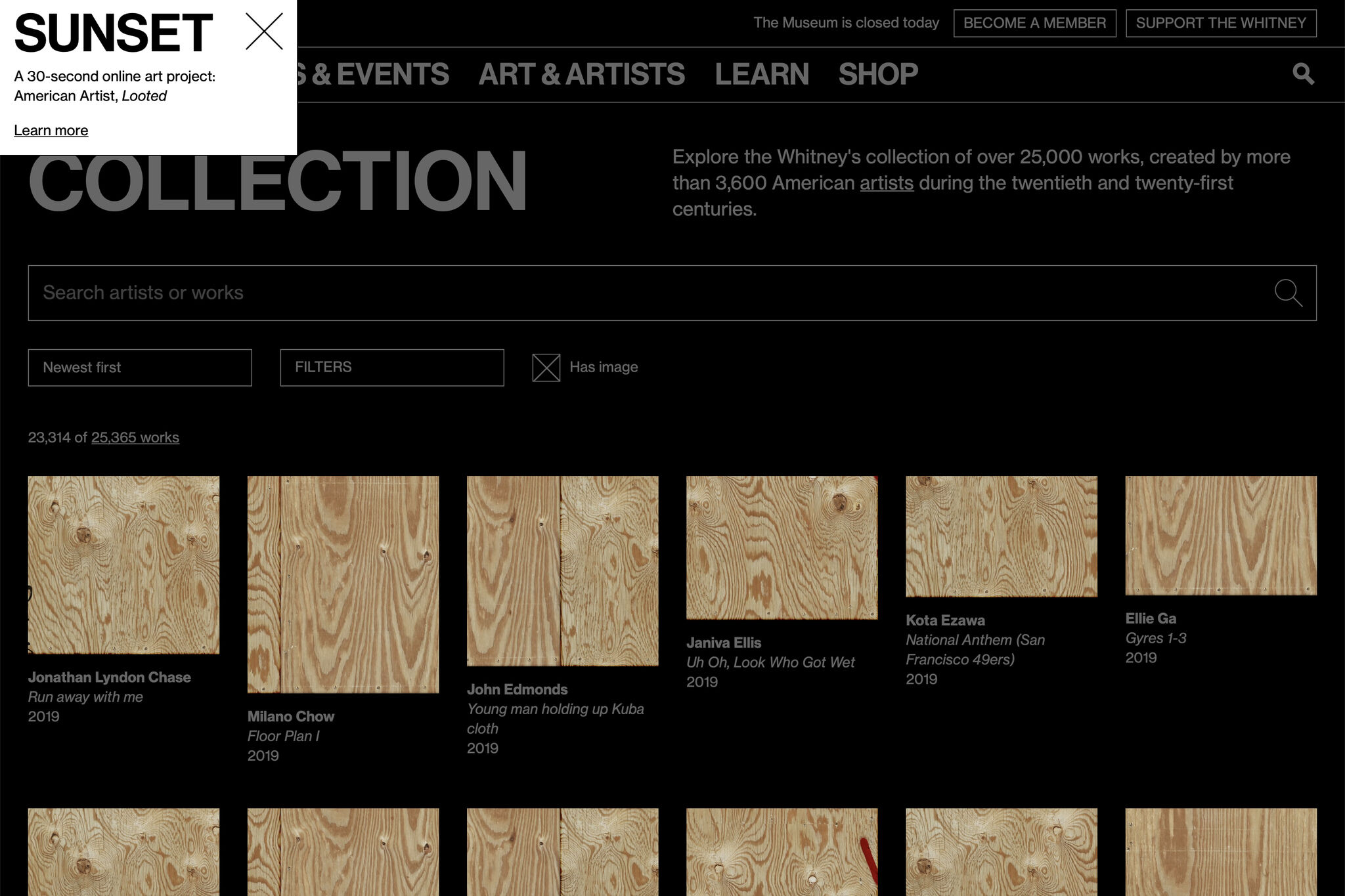American Artist: Looted
July 21, 2020–Mar 2, 2021
American Artist: Looted
American Artist’s Looted temporarily replaces all of the images on whitney.org with textures of plywood while the background of pages changes to black and the text on them fades. The artwork symbolically and literally boards up the Museum and its website in an act of both redaction and refusal.
Looting, defined as “steal(ing) goods from (a place), typically during a war or riot,” has again become a flashpoint for discussion. Though it is crucial not to conflate looting with protest, some did occur in the shadow of the important and necessary recent protests in U.S. cities denouncing racial injustice and police brutality. While the property damage and theft were almost universally denounced, these acts of vandalism were also viewed by some as expressions of long-simmering frustrations and demonstrations against symbols seen as perpetuating state violence, systemic racism, and capitalist exploitation.
American Artist extends the physicality of this tension between protest and looting to the online space, the primary site for viewing art and cultural programming during the COVID-19 pandemic. As an intervention into a museum website, Looted also alludes to the discussions surrounding colonialist practices in many Western museum collections, as well as activist and artistic critiques of the cultural institutions filled with “loot.” At a time when many storefronts and museums in New York City and around the U.S.—including the Whitney Museum—have (or had) been temporarily boarded, Looted underscores that no space can remain unaffected by the examination of and demands for racial justice, and questions the power structures of providing access to art.
American Artist (b. 1989) is an interdisciplinary artist whose work considers Black labor and visibility, as well as anti-blackness within networked life and digital systems. Their work includes video, installation, new media, and writing, and their legal name change to American Artist serves as an ambivalent foundation for their practice. It insists on blackness as descriptive of an American artist, and at the same time erases identity in virtual spaces where “American Artist” is an anonymous name, unable to be googled or validated by a computer as a person’s name. Artist is a 2018–19 recipient of the Queens Museum Jerome Foundation Fellowship. They are a former resident of Abrons Art Center and EYEBEAM and completed the Whitney Independent Study Program as an artist in 2017. They have exhibited at the Museum of African Diaspora, San Francisco; the Studio Museum in Harlem; Museum of Contemporary Art Chicago, and Koenig & Clinton, New York. They have published writing in The New Inquiry and New Criticals and have been featured in The New York Times, Artforum, ARTnews, and Huffington Post.
Sunrise/Sunset
Sunrise/Sunset was a series of Internet art projects that marked sunset and sunrise in New York City every day from 2009 to 2024. All were commissioned by the Whitney specifically for whitney.org, each project unfolding over a time frame of ten to thirty seconds.
Indicating the switch from day to night and vice versa in one specific location, Sunrise/Sunset projects played with the perception of time and space, underscoring the physical location of the Whitney Museum and the global accessibility of virtual space. The series was organized by Christiane Paul, Curator of Digital Art at the Whitney Museum of American Art.
artport
View more on artport, the Whitney Museum's portal to Internet and new media art.

